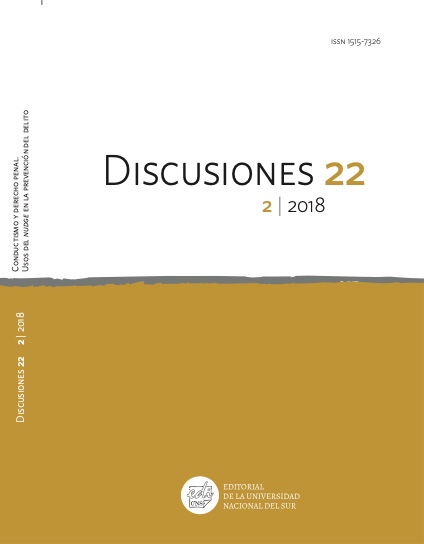Criminal nudge policy. Behavioral Analysis Challenges to Traditional Criminal Law Theory
DOI:
https://doi.org/10.52292/j.dsc.2018.2226Keywords:
Behavioral economics analysis, Criminal public policies, Nudge, DeterrenceAbstract
The objection raised by Harel and Teichman about following “policy recommendations prescribed by behavioral theorists” by governments, that are intended to lead people to obey penal rules and, hence, to prevent crimes from occurring, may perfectly well be understood as both ethical permissibility and practical usefulness concerns about applying what I will call “criminal-nudging-policies”. My purpose in this paper it is not to offer an exhaustive definition of this type of public policy neither to justify their use from an ethical point of view, but to point out some challenges to traditional theories of criminal law from which Harel and Teichman raised such theoretical issues.
Downloads
Published
How to Cite
Issue
Section
License
Discusiones does not withhold rights of reproduction or copyright. Consequently, authors may share the final versions of publications.


